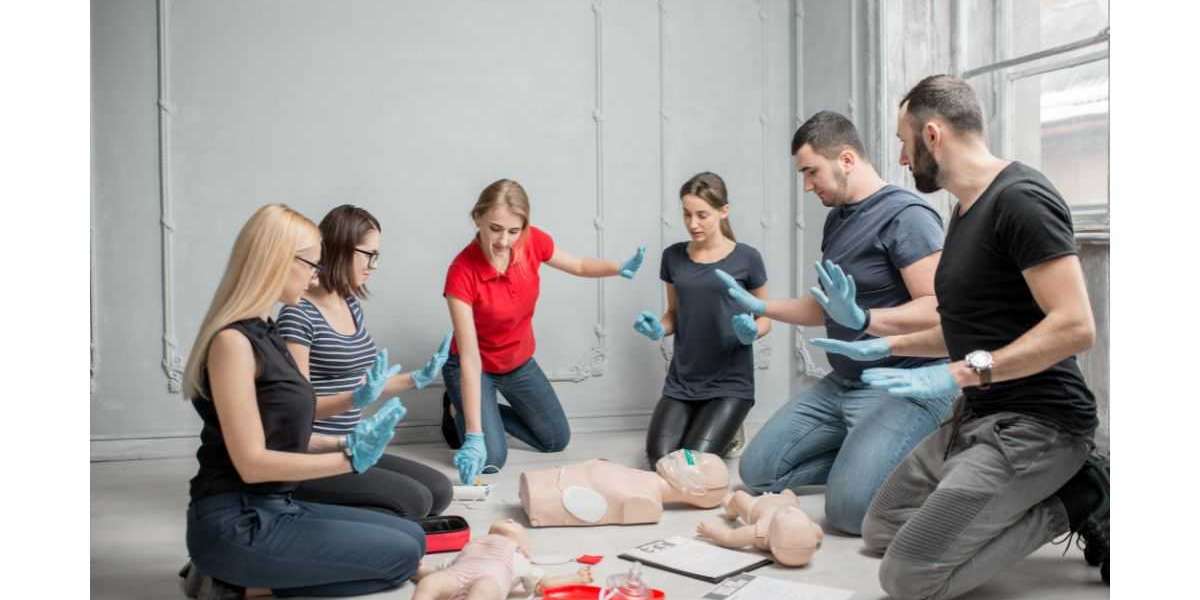When people think of first aid, they often think of CPR. CPR is very useful, but it is only one skill. First aid means much more than that.
In Langley homes, first aid training is a smart choice. It helps keep families safe in daily life. Burns, falls, choking, or allergies can happen at any time. These moments need more than CPR. They need clear steps that anyone can learn.
Why First Aid Matters in Langley Homes
Emergencies can happen fast. A pot of hot water may spill on a child. Someone might fall on an icy step. A family member could have an allergic reaction after dinner.
In these times, waiting for help may not be enough. The BC Ambulance Service works hard, but it may take minutes to arrive. Sometimes, every minute counts.
That is why first aid knowledge is so important. Families who learn first aid can:
- Act fast when something goes wrong.
- Keep injuries from getting worse.
- Help loved ones recover better.
- Stay calm instead of panicking.
First aid is not just about saving lives. It is also about peace of mind.
More Than CPR: What a Full Course Teaches
Many people don’t know that a first aid course in Langley covers far more than CPR. CPR is one tool, but there are many more. A full course teaches skills for many common home problems.
Here are some examples:
Choking and Airway Problems
Children and seniors choke often. Training shows how to use back blows or the Heimlich maneuver. It also explains how to help babies, kids, and adults.
Cuts and Bleeding
Cuts from knives or broken glass can be serious. First aid shows how to press on wounds, use bandages, and when to use a tourniquet.
Burns and Scalds
Hot drinks, ovens, and barbecues cause burns. Training shows how to cool burns, cover them safely, and know when to call for help.
Broken Bones and Sprains
Winter ice in Langley makes falls common. First aid teaches how to support injured arms or legs, reduce swelling, and move people safely.
Poison and Allergic Reactions
Accidents with medicine or food allergies can be life-threatening. Training shows how to spot the signs and use EpiPens or poison control advice.
Medical Problems
Heart attacks, strokes, seizures, and diabetes issues can happen at home. Families learn how to notice symptoms early and give care until paramedics come.
Shock and Stress
Emergencies can scare people. First aid also covers comfort and care. You learn to keep someone calm, warm, and safe until help arrives.
Everyday Accidents
Courses cover daily risks kids swallowing small toys, seniors taking the wrong pills, or injuries during play.
Confidence Is the Key
The best part of first aid is not just the skills. It is the confidence to use them.
Without training, people often freeze. They worry about doing the wrong thing. But first aid shows that doing something is better than nothing.
With training, you can act fast and stay calm. This matters most in families. Picture a child choking at dinner, a parent fainting outside, or a grandparent having a stroke. In those moments, knowing what to do can save a life.
Learning Together as a Family
First aid is not just for parents. It can also help kids and teens.
When parents take training, they show their children that safety matters. Older kids can also take classes designed for them. They can learn how to spot emergencies, help siblings, or support friends.
This builds independence and confidence for young people. It also creates a home where safety is a shared value.
Being safe at home is more than locks or alarms. It is about building a culture of awareness.
Common Emergencies at Home
Let’s see how first aid training fits into real life:
- Kitchen accidents: Burns from hot oil, cuts from sharp knives, or slips on wet floors.
- Outdoor mishaps: Falls on icy driveways, sports injuries in the yard, or bee stings.
- Child problems: Small toys stuck in throats, high fevers, or playground falls.
- Senior issues: Slips, wrong medicine use, strokes, or heart pain.
These are the risks every Langley family faces. First aid does not remove danger, but it gives families the tools to handle it.
Safer Homes Build Safer Communities
When many families learn first aid, the whole community benefits.
- At school, a parent can step in when a child has an allergic attack.
- At a sports event, a coach can handle a sprain before help arrives.
- On a trail, a neighbour can help after a biking crash.
Prepared homes make safer schools, teams, and streets. First aid skills ripple out into the whole city.
Taking the First Step
If you want your family to be ready, start by joining a first aid course in Langley. Courses are hands-on, simple, and made for families.
They include:
- Easy steps explained clearly.
- Practice with mannequins and role-play.
- Tips from certified teachers.
- A certificate that can help with jobs or volunteering.
The time is short, often one or two days. But the value lasts a lifetime.
Final Word: Be Ready, Stay Safe
Emergencies can happen anywhere—kitchens, yards, playgrounds, or driveways. CPR is vital, but it is only one piece. Full first aid training prepares Langley families for many dangers, big and small.
By joining a, you invest in more than skills. You invest in your family’s safety and in the strength of your community.














